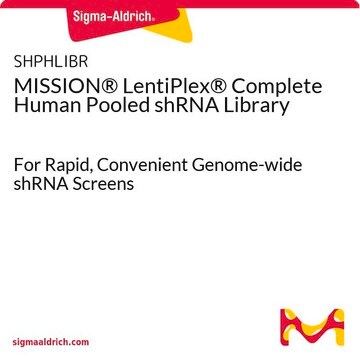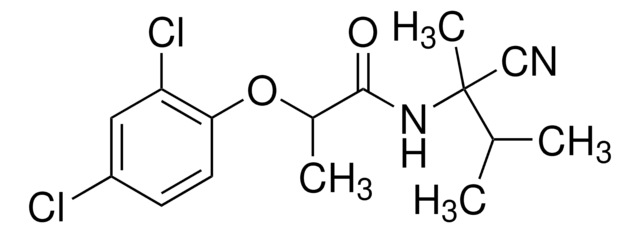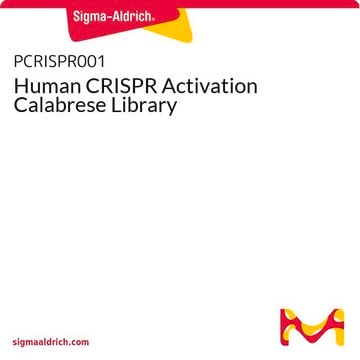HSANGERV
Sanger Arrayed Whole Genome Lentiviral CRISPR Library
Human, Virus Format
About This Item
Prodotti consigliati
Livello qualitativo
Confezionamento
pkg of 10 μL (384-well plate)
Concentrazione
1x106 VP/ml (via p24 assay)
applicazioni
CRISPR
Condizioni di spedizione
dry ice
Temperatura di conservazione
−70°C
Cerchi prodotti simili? Visita Guida al confronto tra prodotti
Categorie correlate
Descrizione generale
Applicazioni
Caratteristiche e vantaggi
- Vector: U6-gRNA/PGK-Puro-2A-BFP (gRNA only)
- Simplify the workflow with puromycin selection
- Illuminate CRISPR-expressing cells with BFP
Additional Features
- Better, not bigger: Two optimized clones per gene reduces the time, cost, and scale of screening experiments
- Ready-to-screen: Clones are arrayed in a robotics-friendly 384-well format for high throughput screening
- Collaborative: Real-time, library validation continues
For detailed information on the Sanger library, click here
Confezionamento
Componenti
Request a Quote or More Information
Stato fisico
Altre note
Prodotti consigliati
Codice della classe di stoccaggio
12 - Non Combustible Liquids
Classe di pericolosità dell'acqua (WGK)
WGK 3
Punto d’infiammabilità (°F)
Not applicable
Punto d’infiammabilità (°C)
Not applicable
Certificati d'analisi (COA)
Cerca il Certificati d'analisi (COA) digitando il numero di lotto/batch corrispondente. I numeri di lotto o di batch sono stampati sull'etichetta dei prodotti dopo la parola ‘Lotto’ o ‘Batch’.
Possiedi già questo prodotto?
I documenti relativi ai prodotti acquistati recentemente sono disponibili nell’Archivio dei documenti.
Articoli
This screening guide covers how to choose a cell line, a screening library, and experimental conditions as well as tips for designing and performing your experiment.
Genome-wide screening with optimized gRNAs per gene ensures specific and efficient knockout, controlling time and cost.
Get tips for handling lentiviruses, optimizing experiment setup, titering lentivirus particles, and selecting helpful products for transduction.
Protocolli
Learn about Sanger Sequencing steps or the chain termination method and how DNA sequencing works and how to read Sanger Sequencing results accurately for your research.
Scopri tutti i passaggi del sequenziamento secondo Sanger, detto anche “metodo di terminazione della catena”, come funziona il sequenziamento del DNA e come leggere accuratamente i risultati per ottimizzare la tua ricerca.
FACS sorts cells based on light scattering and fluorescence for objective cell analysis.
Il team dei nostri ricercatori vanta grande esperienza in tutte le aree della ricerca quali Life Science, scienza dei materiali, sintesi chimica, cromatografia, discipline analitiche, ecc..
Contatta l'Assistenza Tecnica.








